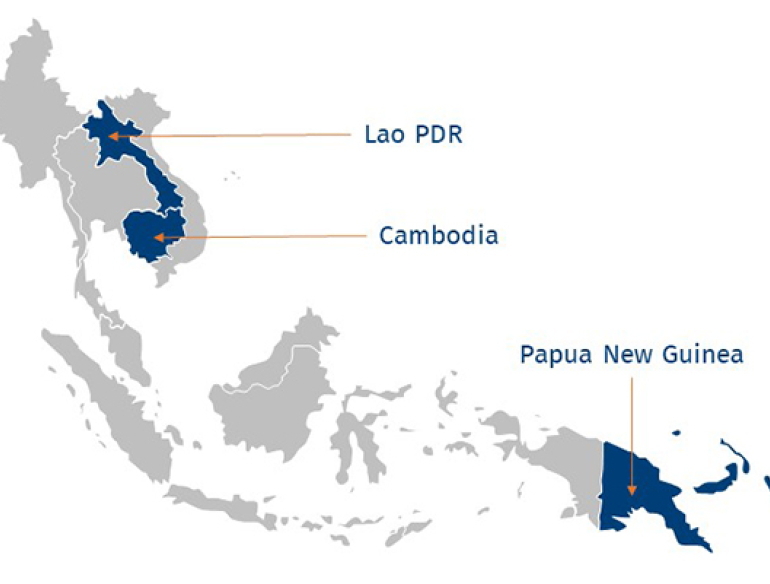The proposed end-of-program outcomes include:
- enhanced laboratory practices for HIV, TB and malaria and COVID-19 to maximise testing capacity, quality and timeliness and minimise risk of disruption;
- secure supply chains and procurement processes;
- laboratory workforce with additional skills in assuring testing services across all tiers of the network; systems established to support COVID-19 RDT use;
- greater integration of multi-disease PCR platforms across laboratory network;
- enhanced digital information systems to support quality assurance, inventory control, public health reporting and response, and laboratory network optimisation;
- enhanced reference laboratory services, including resistance testing for COVID-19, HIV, TB and malaria;
- robust specimen transport systems to extend reach of testing networks; enhanced laboratory biosafety in COVID-19 era;
- and robust, and flexible quality management program to support testing for HIV, TB, malaria and COVID-19 at all tiers of the network.
The ability to make accurate diagnoses is crucial to the control of infectious diseases that have a high public health impact, including HIV, tuberculosis (TB) and malaria. The COVID-19 pandemic has further highlighted the need for reliable and timely high-quality laboratory diagnosis and countries around the world have had to rapidly scale-up their capability and capacity to conduct testing for COVID-19. The capacity to implement testing in low- and middle-income countries has been increasing as accessible technologies including rapid serological tests and closed-system nucleic acid detection devices have improved in accuracy and reduced in cost. An integrated approach to support the expansion of these technologies, including quality assurance, supply chain management, training, and other system components is critical to maintaining and sustaining quality testing for HIV, TB and malaria, and absorb surges in demand to test for COVID-19.
The aim of the IndoPacLab Program is to strengthen laboratory functions for accurate, timely and scalable testing of COVID-19, HIV, TB and malaria.
The program works across three countries (PNG, Cambodia and Lao PDR), chosen because of the consortium members’ strong existing partnerships, in-country presence, relationships with national governments and laboratories and alignment with current activities with bilateral donor and Global Fund investments.
The IndoPacLab consortium represents world-class expertise with recognised leadership in laboratory and diagnostic methodology and proven track records in delivering sustainable laboratory capacity building programs in low- and middle-income settings. The consortium comprises of three Australian institutes (Kirby Institute, Doherty Institute and Burnet Institute) and two international agencies, Clinton Health Access Initiative (CHAI) and the Foundation for Innovative New Diagnostics (FIND).
The program is working closely with the Ministry of Health in each country, adopting a phased approach, driven by country-specific needs and capability assessments. This initial assessment phase will identify local priorities and determine the most cost-effective investments to achieve timely and reliable testing for the four priority diseases of high impact.
Resulting workplans will leverage expertise of consortium members and be built around the following four key objectives:
- Protect existing testing services for HIV, TB and malaria
- Optimise testing capabilities through integrating testing systems for COVID-19, HIV, TB and malaria
- Enhance quality, capacity and safety of laboratory testing for high impact infectious diseases in the COVID-19 era
- Enhance laboratory networks and cross-country collaboration
The IndoPacLab Program is supported by the Australian Department of Foreign Affairs (DFAT) and implemented by the IndoPacLab Consortium.


